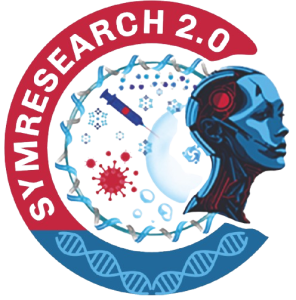In recent years, artificial intelligence has been transforming healthcare tremendously as an assistive technology in diverse settings and application domains, from early detection, diagnosis, and prognosis of diseases to providing real-time patient care, disease progression, and read missions in medical interventions. They analyze medical images and pathology reports faster than radiologists, surpass human capabilities, use predictive analytics and patient monitoring, and provide personalized medicine and complex disease diagnosis. They are providing tailored treatments with precision medicine and optimizing therapeutic outcomes. AI-driven drug discovery and clinical trials are widely applied in fields such as neurology and oncology, providing clinical decision support for improved and informed decision-making. AI-assisted surgery is non invasive and improves precision and recovery time. Chatbots and virtual assistants assist in mental health and behavior analysis. IoT wearable sensors and remote monitoring systems aid in timely care. Preventive medicine aims to identify health risks and enhance data sharing and security in healthcare with blockchain and federated learning, improving operational efficiency, quality, and accessibility globally. Multimodal AI-based technologies integrate and process high dimensional complex heterogeneous data from diverse modalities, streams E.H.R., medical images, lab reports, and wearable sensor devices, and improve decision-making by building comprehensive and holistic pictures by blending computer vision and natural language processing domains.
The session will focus on:-
- Artificial Intelligence and Machine learning for
- Telemedicine
- Remote monitoring with Wearable technology an IoMT
Learning Objectives:-
- Gain insights into how artificial intelligence is utilized to enhance diagnostics, treatment planning, patient monitoring, and healthcare management.
- Learn about various machine learning algorithms and their roles in predictive analytics, medical imaging analysis, and personalized medicine.
- Understand the ethical implications, patient privacy concerns, and regulatory frameworks associated with deploying AI solutions in healthcare settings.
- Develop skills to assess the accuracy, reliability, and validity of AI models used in clinical practice.
- Explore strategies for the seamless integration of AI technologies into existing healthcare infrastructures to improve patient outcomes and operational efficiency.
Learning Outcomes:-
- Critically evaluate how AI technologies transform various aspects of healthcare, including patient care, administrative processes, and decision-making.
- Implement appropriate machine learning techniques to interpret complex healthcare datasets and derive meaningful insights.
- Identify and address ethical dilemmas and legal requirements pertinent to the use of AI in healthcare environments.
- Measure and interpret the performance metrics of AI applications to ensure their efficacy and safety in clinical settings.
- Formulate comprehensive plans for incorporating AI tools into healthcare practices, considering factors like user training, workflow adaptation, and system interoperability.

